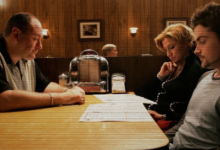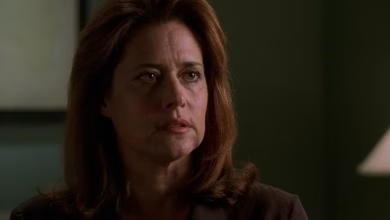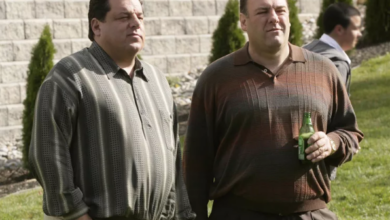‘The Sopranos’ Remains the Pinnacle of the Anti-Hero and Character-Driven Television
“A gangster goes to therapy.” In five words, the quintessential anti-hero was born.
The motif of the anti-hero has revolutionized modern dramatic storytelling. “Breaking Bad,” “The Wire,” “Mad Men,” “BoJack Horseman,” “Better Call Saul,” “Peaky Blinders,” “Dexter,” “House of Cards” … the list goes on. But this concept originated in a show that premiered more than 24 years ago: David Chase’s HBO drama, “The Sopranos.” The trailblazing precedent set by the show paved the way for the flawed protagonist to captivate audiences around the world.
Widely accepted as the greatest and most influential show in TV history, “The Sopranos” pioneered the idea of relatable yet morally reprehensible characters. Audiences feel like a fly on the wall, following characters on their journeys through joy and optimism alongside betrayal and depression.
The show is set in New Jersey and centers around Italian mob boss Tony Soprano as he juggles managing the mob and his own family. Portrayed by the late great James Gandolfini, Tony is a hot-tempered, strong-willed brute who is constantly unfaithful to his wife Carmela, played by Edie Falco.
At the same time, Gandolfini and the writers shaped Tony into a relatable and likable family man that the audience continuously roots for, especially in the early seasons. For example, Gandolfini brilliantly navigates Tony’s internal intricacies, from his experiences with depression and panic attacks to his troubled relationships with his family to his conflicts with mob rivals. With subtle yet powerful visual and auditory cues, Gandolfini elevates Tony from being a simple, brutish mafia boss to a deeply complex anti-hero that makes him the paragon of the dramatic lead actor.
However, Gandolfini’s acting is not the only standout performance in the show. The brilliant ensemble cast, some of whom were not even trained actors before the show, all hit their stride when working on “The Sopranos” under Chase’s innovative show running.
With a layered, wide-ranging cast of hundreds of actors, the show was not afraid to dive into each character personally while connecting them to the main character and his story. Chase and his team of brilliant writers and directors made it a priority to never create a flat character — everyone, no matter how minor, displayed nuance and dynamism. At the same time, the acting is rarely over the top, which makes the audience pay more attention to them when they get particularly emotional.
The exceptional writing prioritizes attention to detail above all else. It dives into the depths of a range of psychological conditions and vices such as depression, rage, gambling, greed, anxiety, murder, parental concerns, homosexuality and suicide. Contrary to what some may assume, “The Sopranos” is no shallow, dull show about tough mafia guys and their violent endeavors. The show explores real issues, all while maintaining the interest of the audience through the unique idiosyncrasies of the characters and their dark humor. The grimmest moments of the show end up being the funniest, too — something that is particularly difficult to pull off authentically.
Everything written in the show has a purpose, and if something no longer affects the purpose, the show drops it completely. Although there are clear plot arcs, most of the time, the show simply features the daily lives of the characters. Chase and his team did not bother with preaching lofty moral messages about the gangster lifestyle; instead, they put the lifestyle on full display, letting the audience see everything for what it truly was. Viewers are not given anything to believe but are instead forced to interpret the moral corruption of characters for themselves.
Shattering television norms at the time, the groundbreaking show brought a cinematic element to TV that had never been seen before. It ushered in the golden era of television, where complicated characters, salient cinematography and dark narratives took control of the small screen. The influence of “The Sopranos” in introducing the “anti-hero” protagonist concept has revolutionized television forever.
“The Sopranos” represents arguably the greatest show in dramatic television history, and it is hard to think of another series that displays such intelligence, elevated writing and high-caliber performances. I would recommend it to anyone who wants to experience cinema via television at the highest level.



